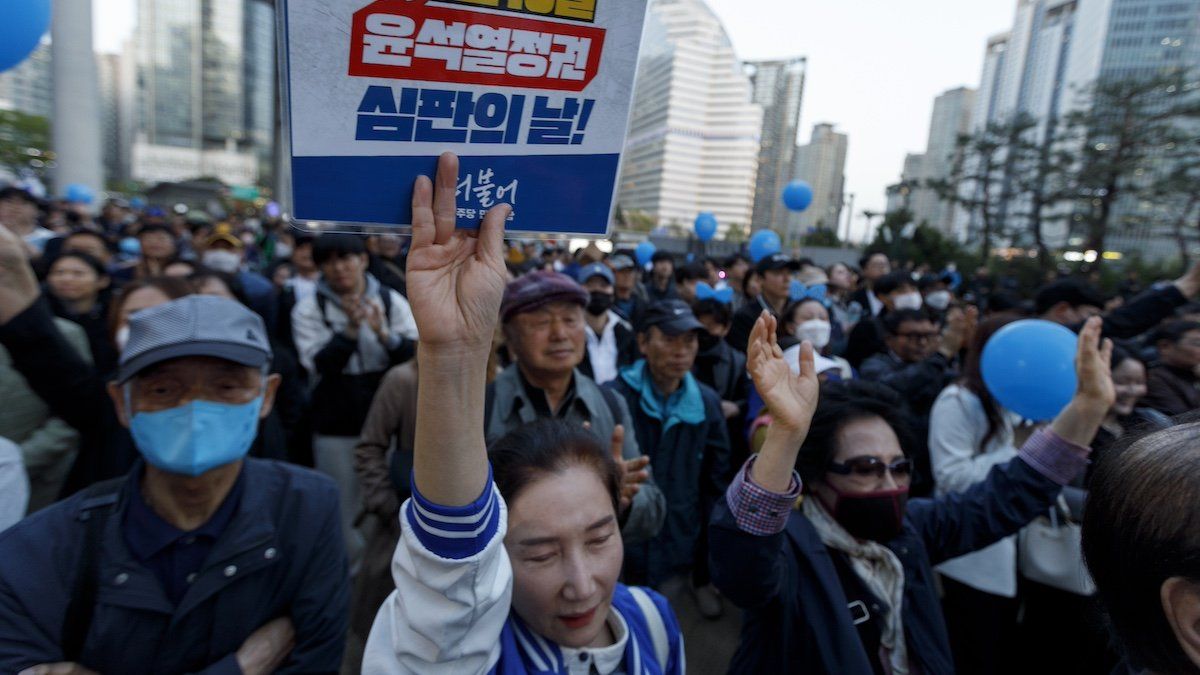South Koreans went to the polls today for key legislative elections amid a bitterly polarized environment and a sluggish economy, with early exit polls showing a likely landslide for the opposition Democratic Party. President Yoon Suk Yeol has been stymied by DP control of the unicameral legislature throughout the first two years of his presidency, and his People Power Party was facing daunting odds heading into today.
Cost of living is top of mind. Opposition leader Lee Jae-myung turned the humble green onions that feature in so many Korean dishes into a political weapon after Yoon made remarks on their price that were perceived as being out of touch. Meanwhile, Yoon’s wife, Kim Keon-hee, has been at the center of a luxury gift scandal, which has hardly helped with perceptions of aloofness.
That said, Lee faces graft allegations of his own and is no less of a controversial figure. In fact, he was lucky to survive an attempted assassination in January, when he was stabbed in the neck at a campaign rally. Political violence is not unheard of in South Korea, but the incident underlines the depth of the country’s political divisions.
“Because of the political polarization, South Koreans end up deciding elections based on things like whether the first lady received a $2,000 handbag and didn't report it,” says Eurasia Group senior analyst Jeremy Chan. “It speaks to the underlying dynamic in South Korea, where folks are deciding on the trivial stuff because the political parties can't deal with the big issues.”
And there are BIG issues on South Korea’s plate: The country is getting old and having very few babies, economic growth is weak and unlikely to improve, and, of course, North Korea’s nuclear weapons threaten total annihilation.
Chan expects Yoon to continue focusing on foreign policy if exit polls hold true, including “doubling down on the rapprochement with Japan, broadening relations with Europe, with ASEAN, and with the United States, while moving further away from China and North Korea, because that's where he can exert influence without the National Assembly.”
Official results are expected early Thursday.
